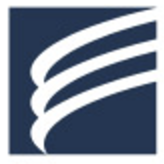Detailed introduction of Schmalkalden University of Applied Sciences:
Introduction and Overview
Located in Schmalkalden, Thuringia, Germany, Schmalkalden University of Applied Sciences is a university that provides education in a wide range of applied sciences. It currently has about 2,500 students, covering undergraduate and master's studies.
The school maintains cooperative relations with about 200 institutions around the world, providing students with rich international exchange and cooperation opportunities.
History and Establishment Time
The school was founded in 1876 and has a long history of education.
School Strength
Faculty: It has 63 professors and 220 faculty members, who have rich experience and professional knowledge in teaching and scientific research, and can provide students with high-quality education and guidance.
Teaching Mode: Focus on practical teaching, adopt a variety of teaching methods such as project-based learning and practical training, so that students can master professional knowledge and skills in practice. At the same time, the school also emphasizes small class teaching and close communication between teachers and students to better meet students' learning needs.
Scientific research: As a regional competence center for technology and innovation in southern Thuringia, the school actively carries out application-oriented scientific research projects, establishes cooperative relationships with many enterprises, provides technical support and solutions for enterprises, and promotes the transformation and application of scientific research results.
Nature of the school
Schmalkalden University of Applied Sciences is a public university of applied technology.
Educational philosophy
Emphasis on the combination of theory and practice, cultivating students' ability to solve practical problems, so that students can quickly adapt to the needs of jobs after graduation.
Focus on cultivating students' innovative ability and teamwork spirit, stimulate students' innovative thinking through project practice, group work and other methods, and improve students' teamwork ability.
Attach importance to international exchanges and cooperation, cultivate students' international vision and cross-cultural communication skills, so that students can better develop their careers in the context of globalization.
Key laboratories and disciplines
Key laboratories: The school has a number of advanced laboratories, such as electrical engineering laboratories, mechanical engineering laboratories, computer science laboratories, etc., providing students with a good practical teaching and scientific research platform.
Key disciplines: including electrical engineering, mechanical engineering, computer science, business and economics, commercial law, etc. These disciplines have achieved remarkable results in teaching and scientific research, providing students with high-quality educational resources.
Department settings
The school has five departments, including the Department of Electrical Engineering, the Department of Mechanical Engineering, the Department of Computer Science, the Department of Business and Economics, and the Department of Commercial Law.
Ranking
Although the school does not have a clear comprehensive ranking, it performs well in the rankings of some professional fields. For example, some of its engineering majors and economic management majors have a high degree of popularity and recognition among German universities of applied sciences, and from the school's official website, its students are reflected in various university rankings. The school can provide high-quality education.
Expenses
Tuition: German public universities are usually free of tuition, but students need to pay about 500-600 per semester. Registration fee of Euros.
Living expenses: In Schmalkalden, students' monthly living expenses are about 700-900 Euros, including accommodation, food, transportation, entertainment and other expenses.
Campus
Campus environment: The campus is located on the edge of the Thuringian Forest, with a beautiful environment. It is known as one of the most beautiful university campuses in Thuringia and even Germany. The teaching buildings, laboratories, canteens, libraries, dormitories and sports facilities on campus are all within walking distance, providing convenience for students' study and life.
Campus culture: The school often holds various cultural activities, sports activities and academic lectures, which enrich students' extracurricular life and create a strong campus cultural atmosphere. In addition, the school also organizes students to participate in international exchange activities and internship programs, broadening students' horizons and enhancing their international competitiveness.
-

Heidelberg University
-

University of Freiburg
-

University of Jena
-

University of Marburg
-

University of Rostock
-

University of Halle-Wittenberg
-

University of Bayreuth
-

Leipzig University
-

University of Tübingen
-

Humboldt University of Berlin
-

Mesoamerican University
-

Istmo University
-

Mariano Galvez University of Guatemala
-

Regional University of Guatemala
-

Galileo University
-

Francisco Marroquín University
-

Rafael Landívar University
-

University of the Valley of Guatemala
-

University of San Carlos of Guatemala
-

Technological Institute of Tlaxcala Plateau
-

Golfo University
-

Technological University of South Sonora
-

Technological University of Huejotzingo
-

Tizimín Institute of Technology
-

Chilpancingo Institute of Technology

